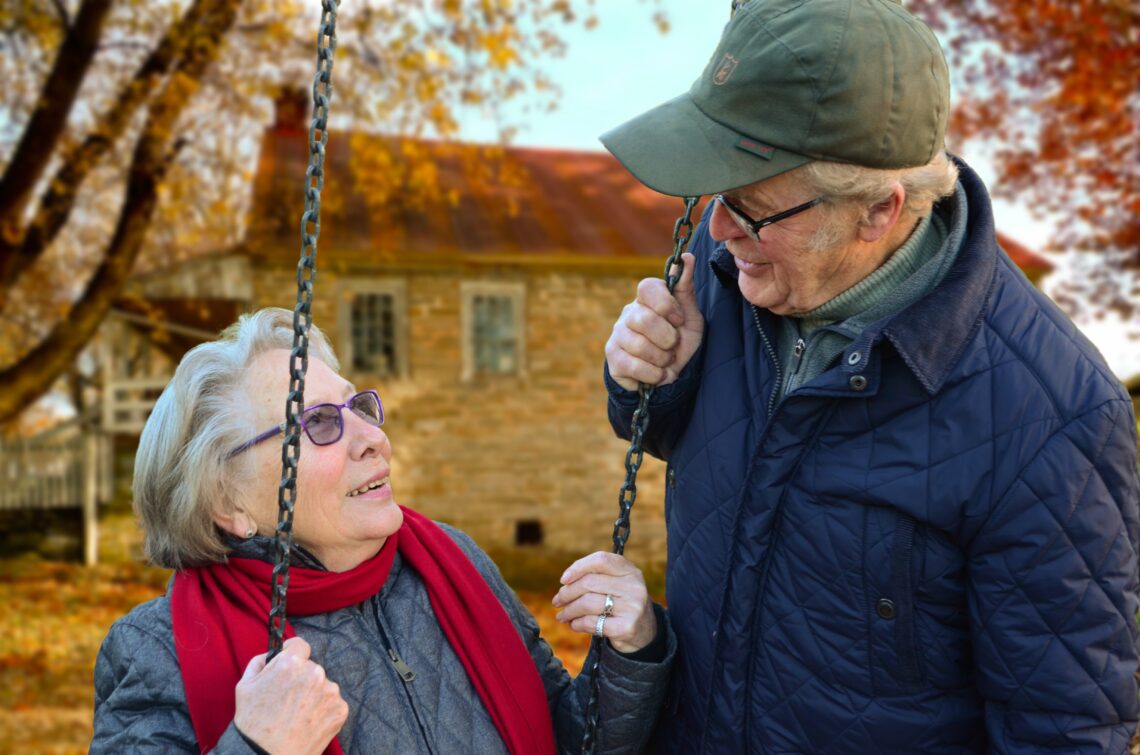Articles related to
Dementia
What causes dementia?
When doctors talk about dementia, they’re referring to a set of symptoms, not a disease with a specific cause. People with dementia struggle with memory and reasoning. The key symptoms of the condition are forgetfulness and difficulties with thinking, language…

Treatment of dementia
Whether it’s caused by Alzheimer’s or vascular disease, a diagnosis of dementia can make the future seem bleak. Although medical science still hasn’t discovered a cure for the condition, there is now a much greater understanding of dementia and the…

Dementia tax explained
The ‘dementia tax’ refers to the added expense for dementia patients and their families, who are often required to pay for long-term care with little or no support from the government. What is dementia tax? The term “dementia tax” was coined…
Would you like to know more about Hometouch's high quality live-in care service?
How are Parkinson’s and dementia related?
Dementia is a comorbidity of Parkinson’s, which means that the damage caused to the brain through Parkinson’s, can cause dementia. How are Parkinson’s and dementia related? Parkinson’s and dementia are two of the most common degenerative neurological conditions in this…
Speak to one of our knowledgeable care advisers about Hometouch’s high quality live-in care service

Why do Parkinson’s patients sleep so much?
Parkinson’s patients experience difficulties with their sleep due to the disease itself and the medications that treat it. This can lead to increased sleepiness during the day. Parkinson’s disease can cause problems with sleep, and the medications used to treat…
Help us end the stigma of dementia with Unforgettable
James Ashwell, founder of Unforgettable dementia products, spent five years caring for his mum who had early onset dementia. They were the hardest years of his life, but they gave James a passion to help others on the dementia journey. Here James explains how Unforgettable might be able to help you. Mum was in her fifties when she was diagnosed with frontotemporal dementia, but it wasn’t until Dad died suddenly that the full extent of her illness became clear. I quickly realised Mum couldn’t live alone, so I gave up my job in London and become her carer.I was very fortunate to have three siblings Simon, Gemma and Mark, who were prepared to help practically and financially, and we also employed professional carers when necessary. Even so, those first few months were absolute hell.Eventually, we realised that if Mum wasn’t to sit staring at the TV all day, we needed…
Vascular Dementia
Vascular dementia is a type of dementia and is caused by an interruption to the blood supply to the brain, usually caused by a number of small strokes, not by Alzheimer’s disease. What is vascular dementia? Many people use the terms dementia and Alzheimer’s Disease interchangeably, but Alzheimer’s is not the only cause of dementia. As many as one in five people affected have vascular dementia, and if you’ve never heard of it, it’s not surprising. It’s also known as multi-infarct dementia (MID) or vascular cognitive impairment (VCI) and it is actually the second most common cause of the condition. In vascular dementia, the brain is damaged by an interruption to the blood supply, usually by a number of small strokes. When the blood flow is interrupted, the brain cells do not receive the nutrients and oxygen essential for life. These so-called ‘mini’ strokes can be so minor that they’re…
The early signs of dementia
The early signs of dementia include forgetfulness, misplacing of objects, struggling to find the right words, personality changes, and confusion. We all walk into the kitchen and forget what we came for, or misplace our keys every now and then. So, what is normal forgetfulness and what could indicate that there may be a problem? Dementia is the term for a set of symptoms that include memory lapses, difficulties thinking and solving problems, impaired communication and behavioural changes. The early signs of dementia can often be subtle to begin with, but they may gradually escalate until they can affect every aspect of daily life. Dementia can affect different people in different ways, each individual is unique. However, there are some key signs to look out for: Memory loss Forgetfulness is often a significant early sign. Dementia tends to affect short-term memory more than reminiscences from the past. So, an individual…
Exercise and dementia prevention
Physical activity can improve the health of mind, body and spirit, and there’s evidence that exercise can protect against dementia. Research is confirming that staying active may help those affected by dementia to maintain their independence and boost their quality of life. Exercise helps with almost every long term condition; it can reduce the likelihood of developing dementia and the progress of Alzheimer’s disease. We all know that exercise is important for our health, it’s constantly advocated in books, blogs and on TV. But regular activity can offer more than just a fit physique. Activity can help protect the brain from dementia as we age, and slow down deterioration in people already affected. Regular exercise really is essential for a healthy body and a healthy mind. Research shows that exercise works, not only to improve the general health of people with dementia, but it also appears to improve their cognitive function,…
Alzheimer’s Disease Treatment
There is no single Alzheimer’s treatment, but regular brain training, social stimulation, keeping to regular routines, and maintaining a healthy diet can all help to slow the decline. Alzheimer’s Treatment Sadly, there is still no known cure for Alzheimer’s Disease, but scientific advances have improved our understanding of the condition. New Alzheimer’s treatments are being developed, and promising research is underway. In the meantime, there are ways to slow down the decline. A diagnosis of Alzheimer’s can seem hopeless and life-shattering, but it is possible to make a difference to both the quality of life and the progression of the disease. By modifying lifestyle, we can slow the rate of decline and improve memory, communication and function, so that your loved one can stay independent for longer. Brain training Challenging and stimulating the brain in the early stages of Alzheimer’s can slow down the disease progression. Playing puzzles, reading, doing a crossword…
Apply for live-in care jobs
Hometouch has been one of the best companies I have worked for in the care sector! I have always been told I’m appreciated and been made to feel like it too. I’m so happy to be a part of the Hometouch team
Shaheen

£750 - £900 per week. Double bank holiday pay
You choose your own clients
Clinical support
Free training, webinars and supervision